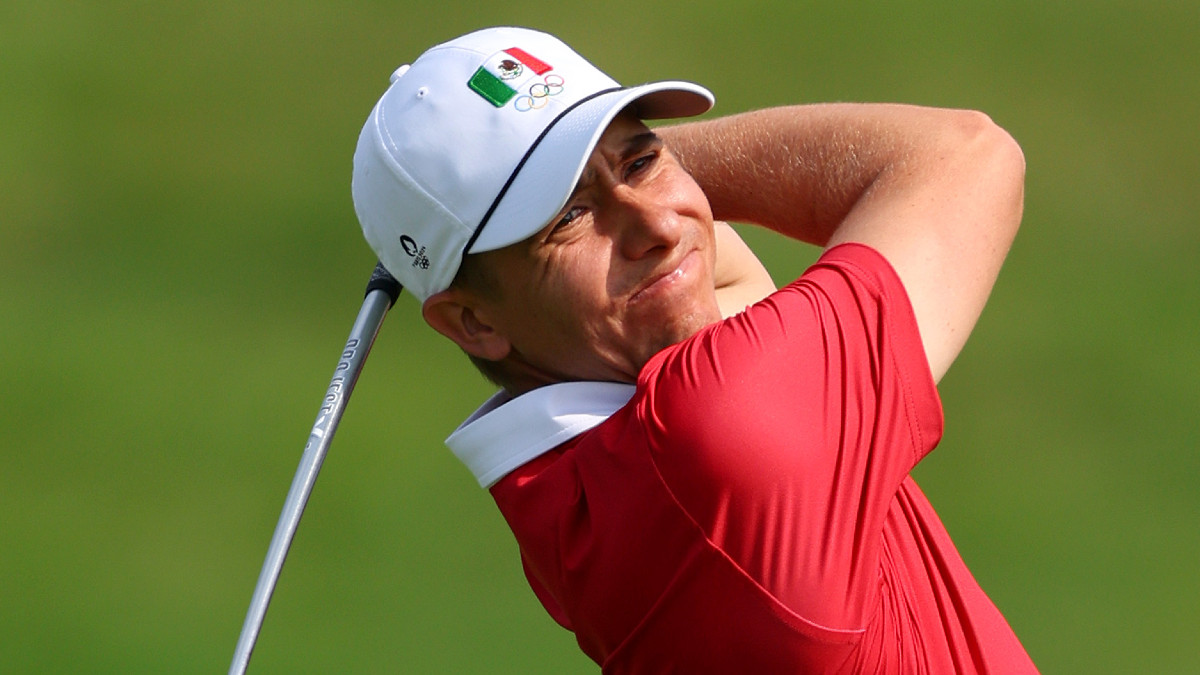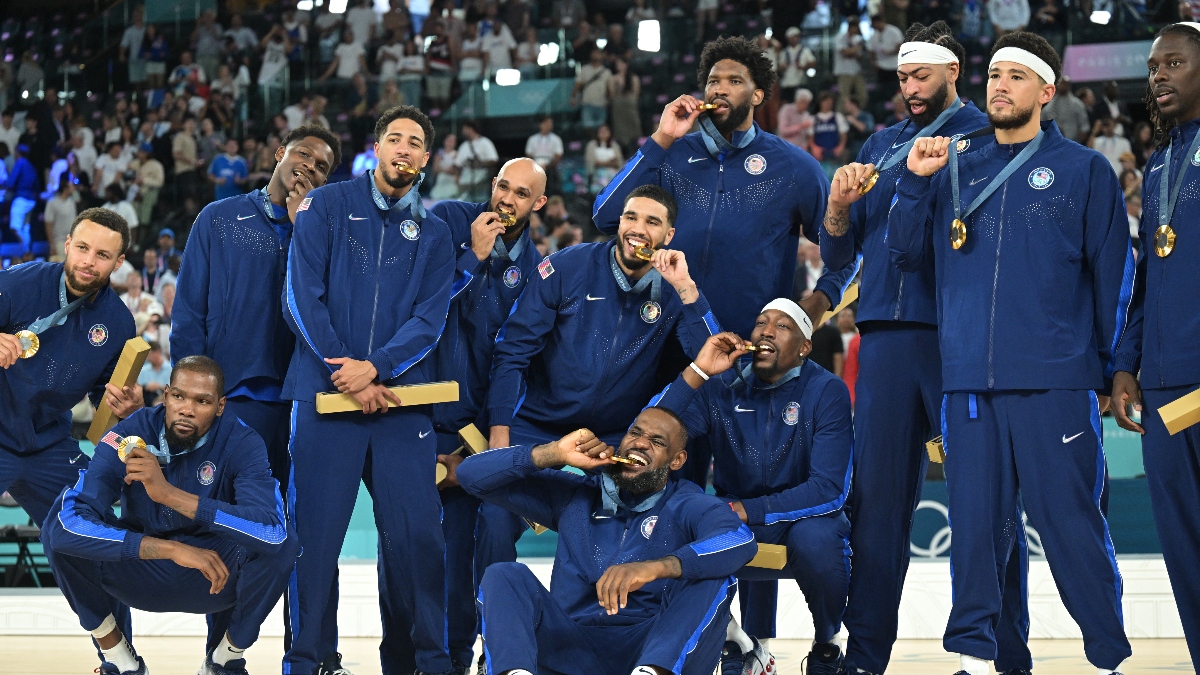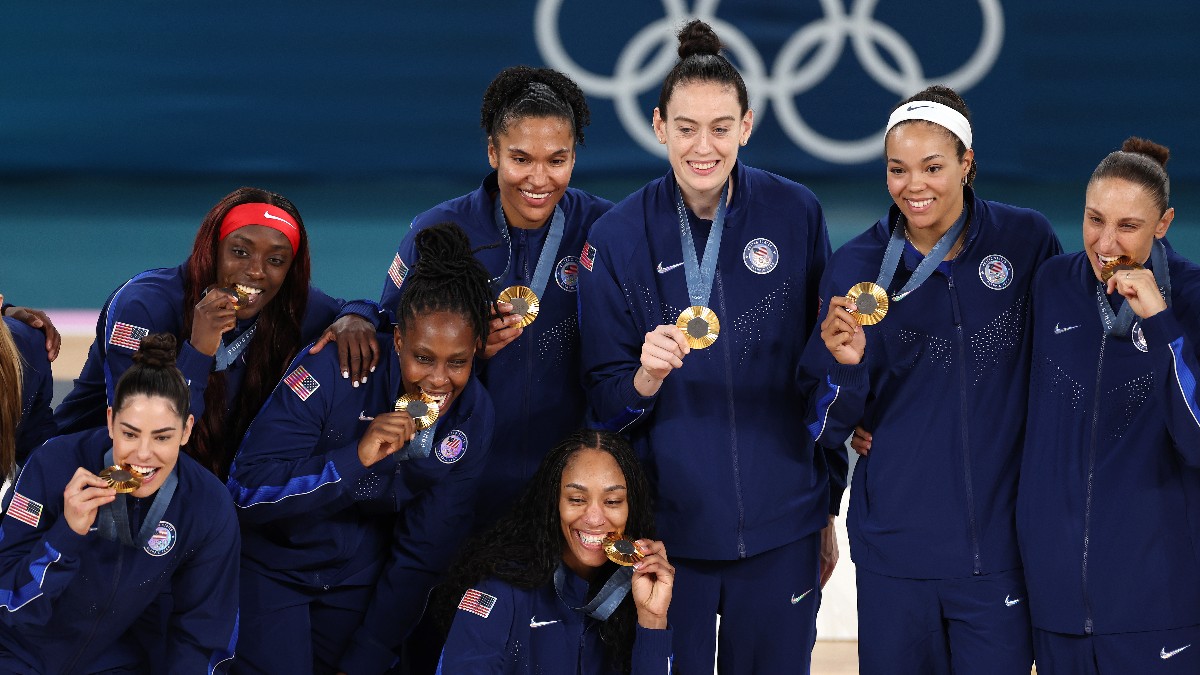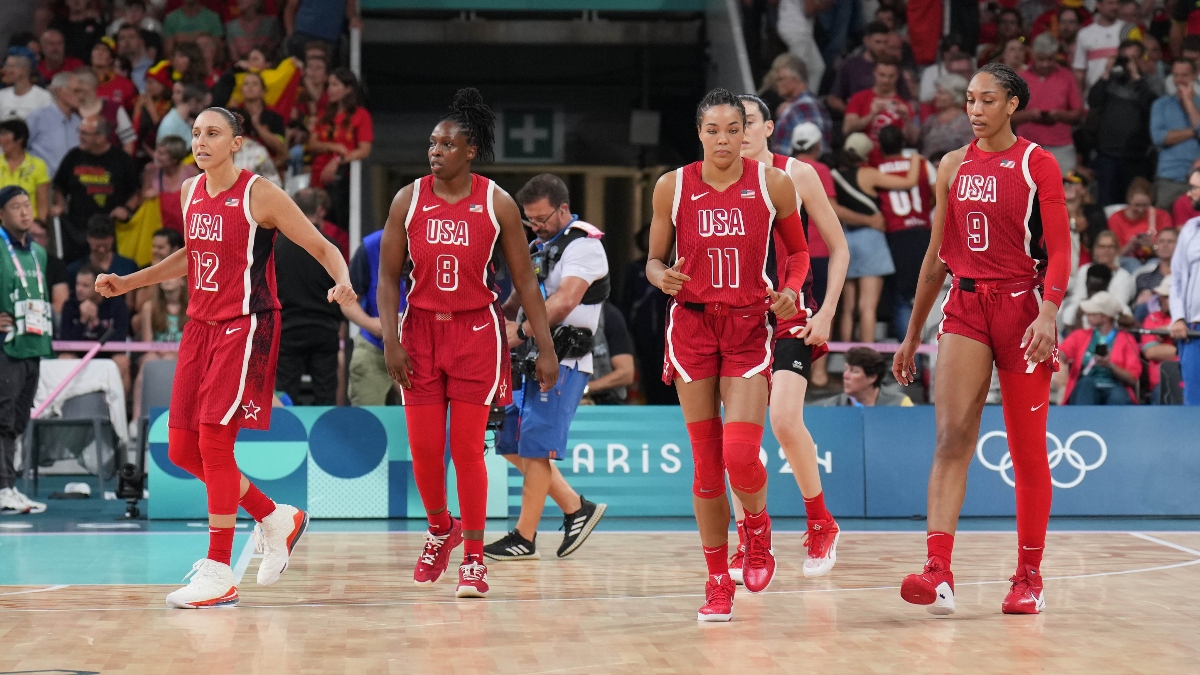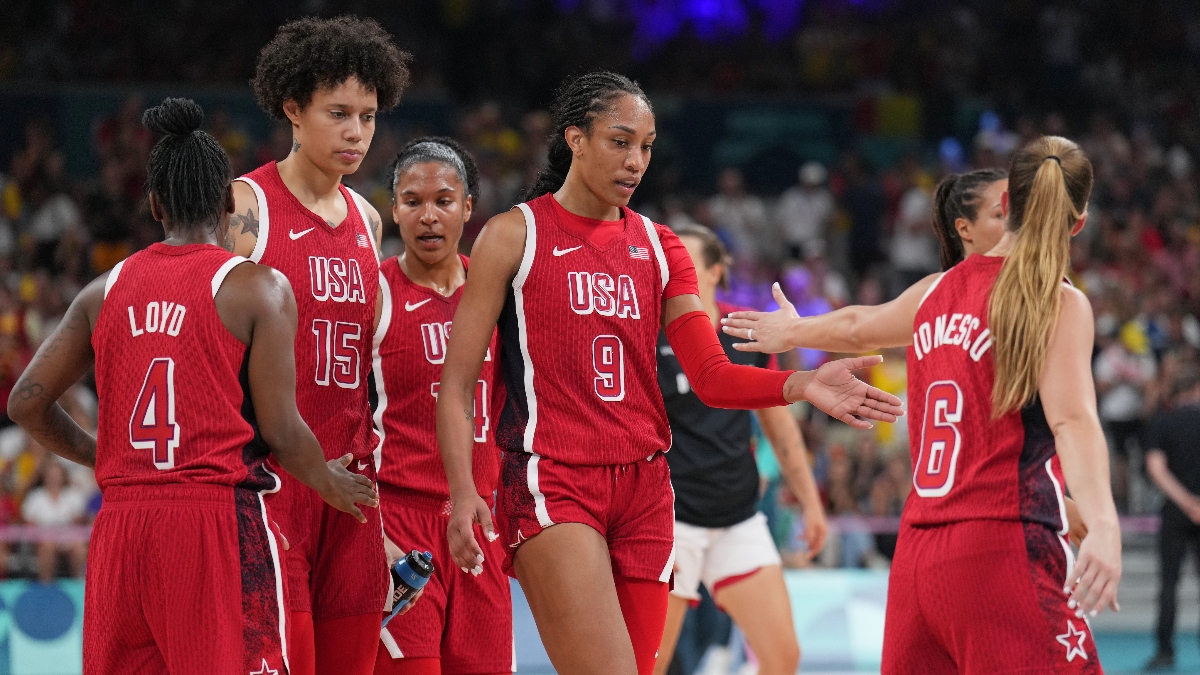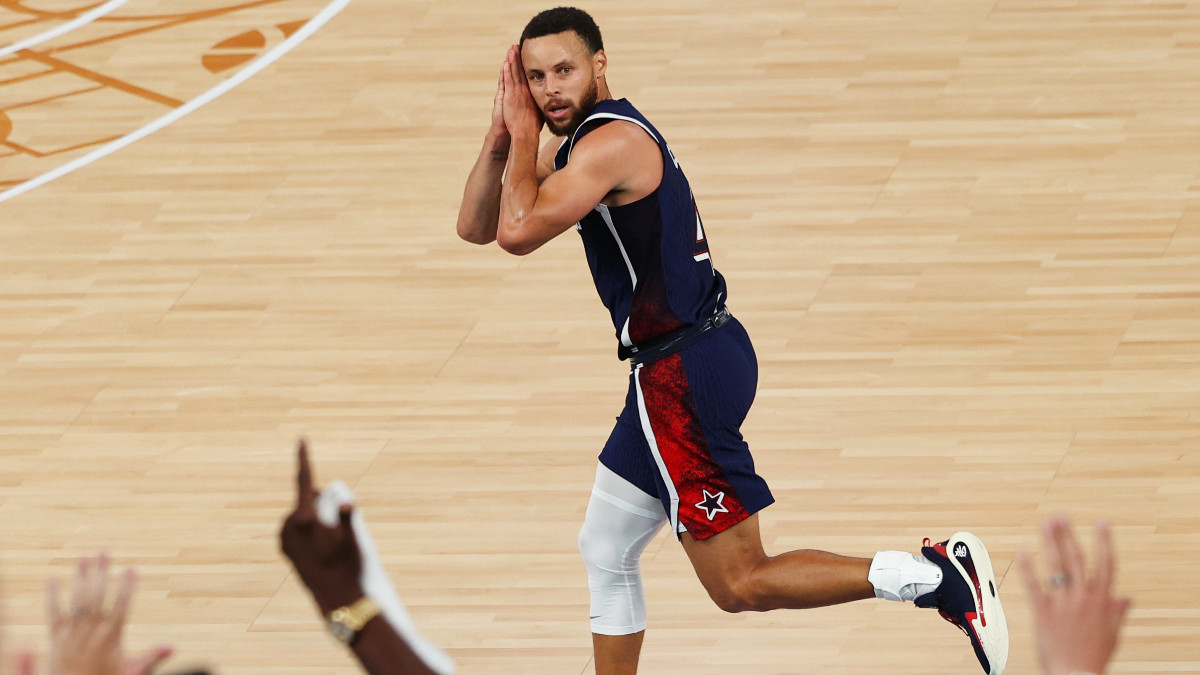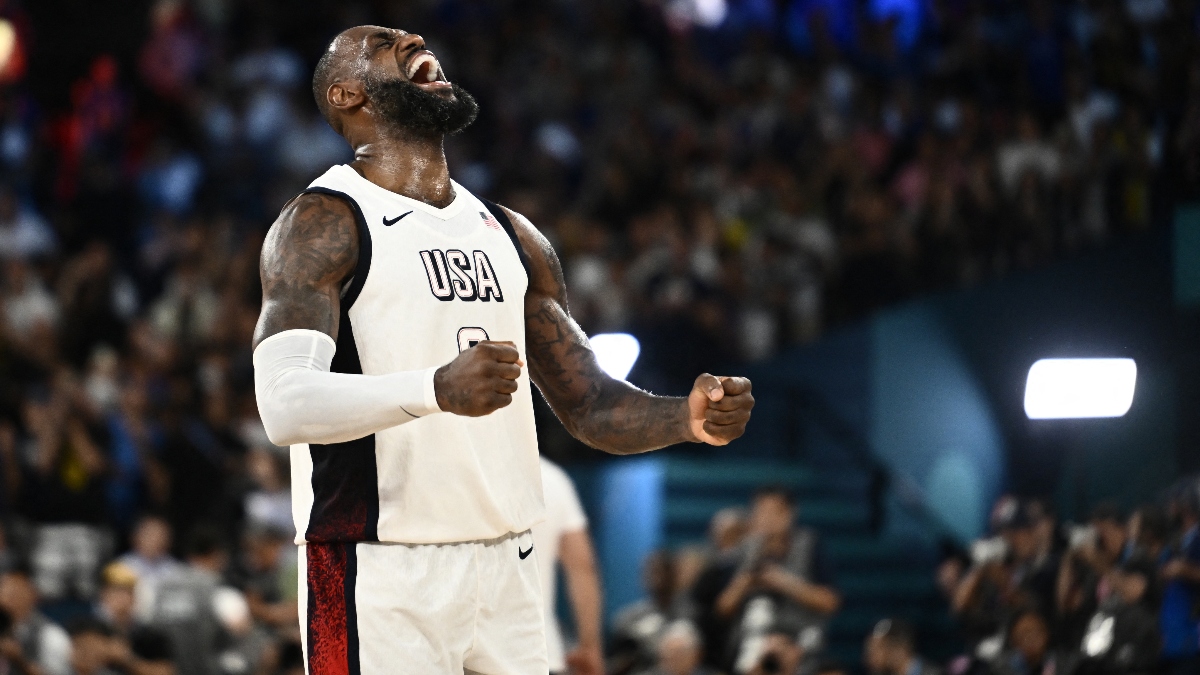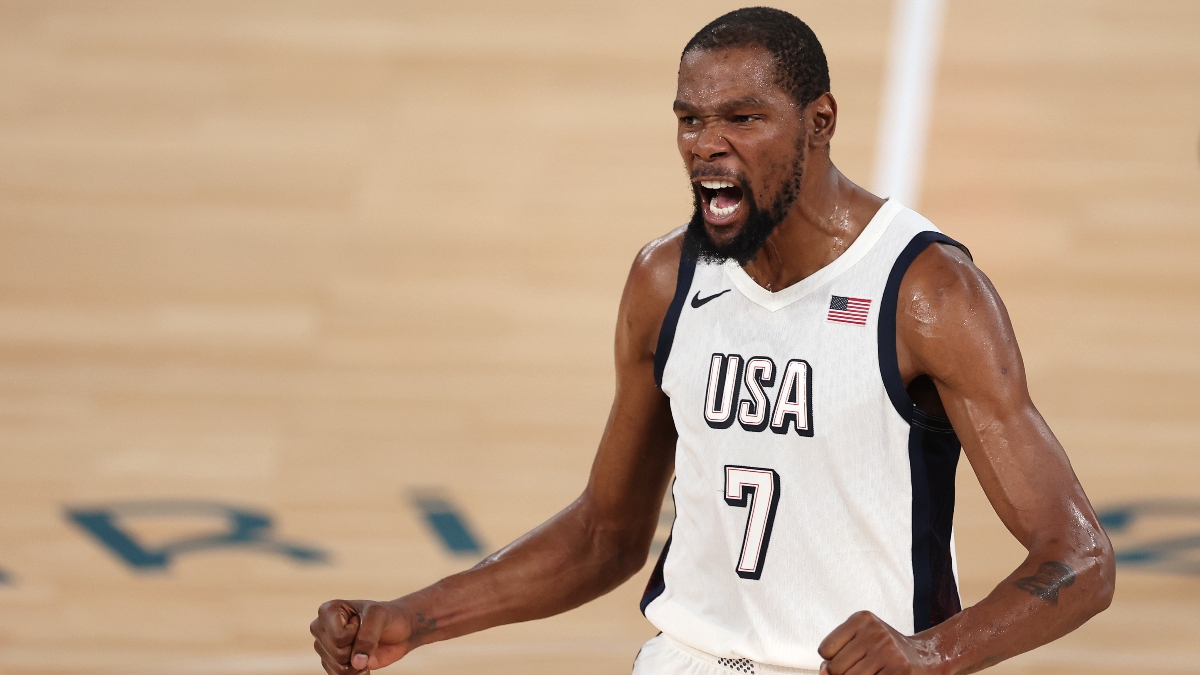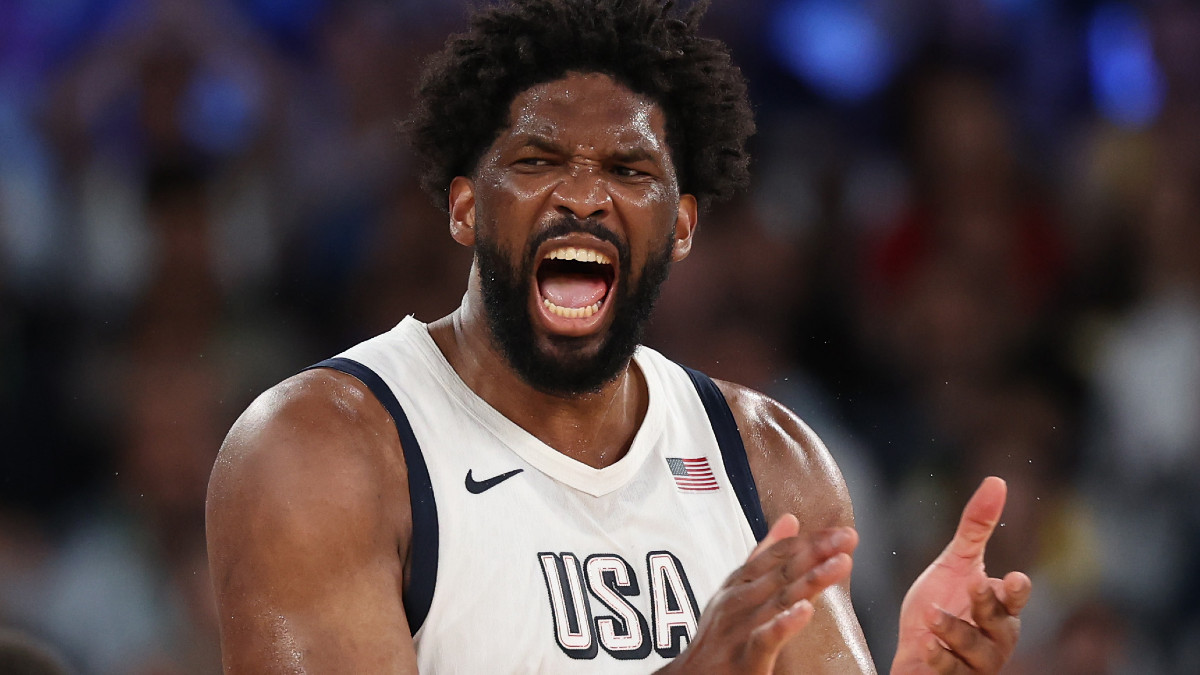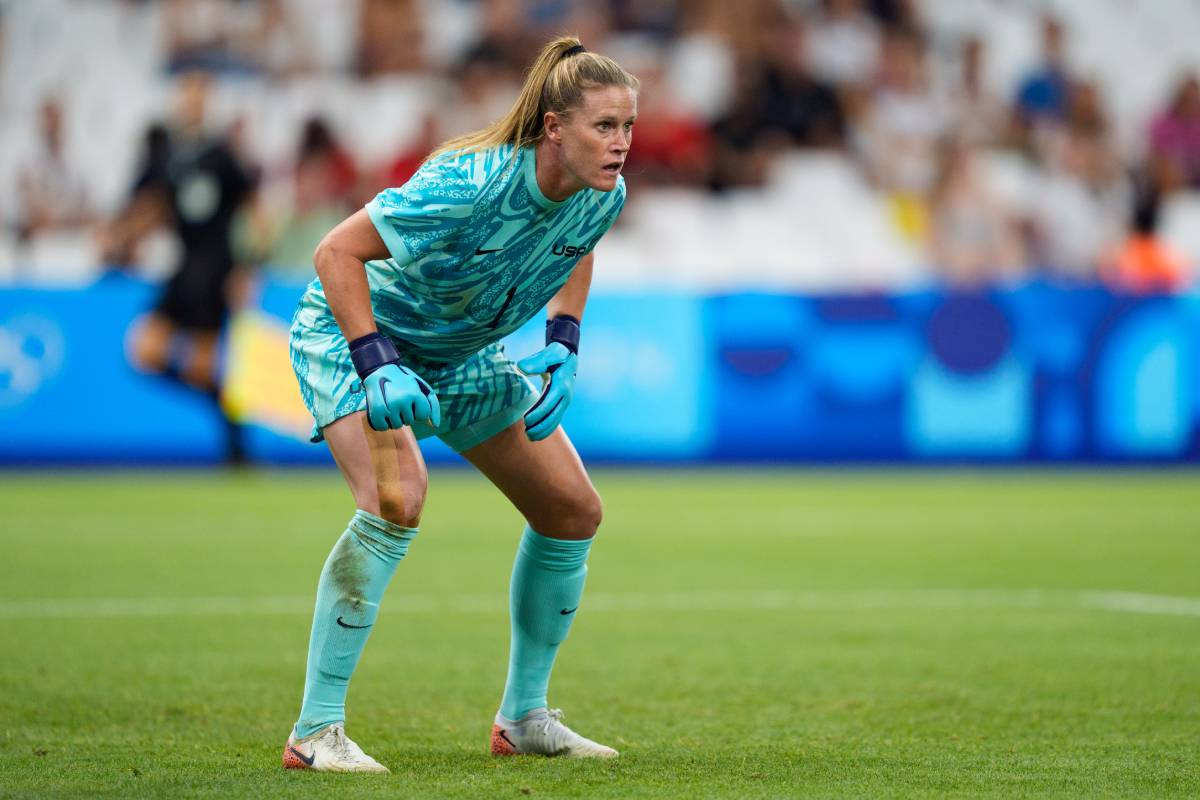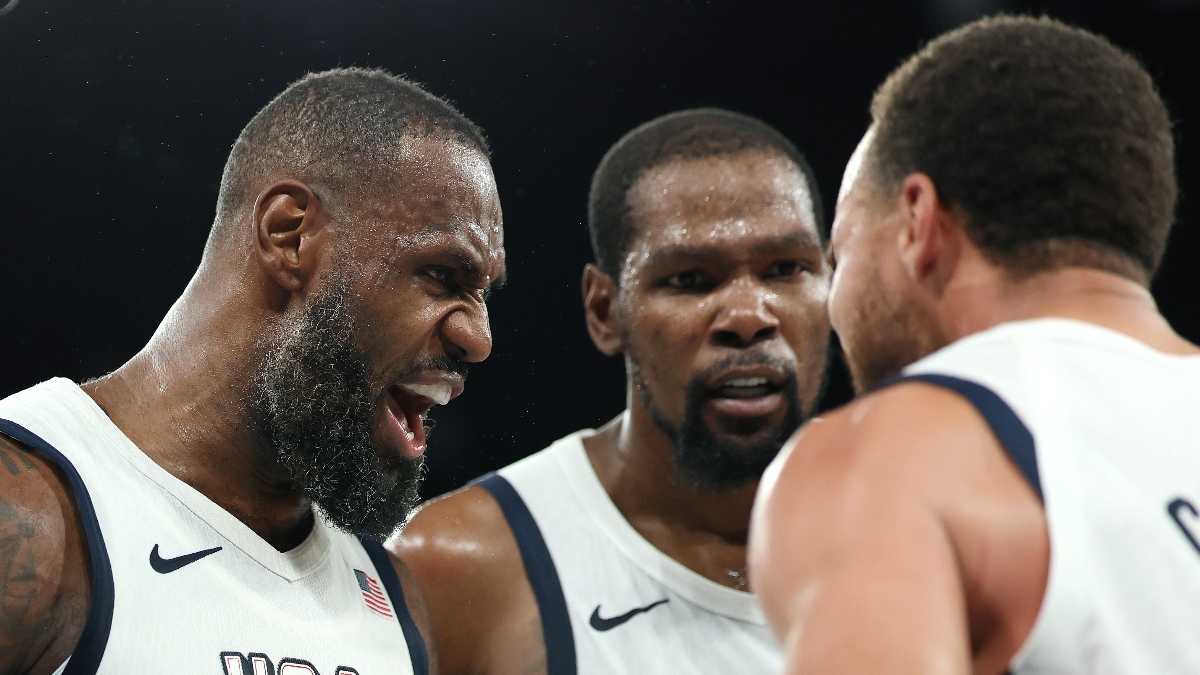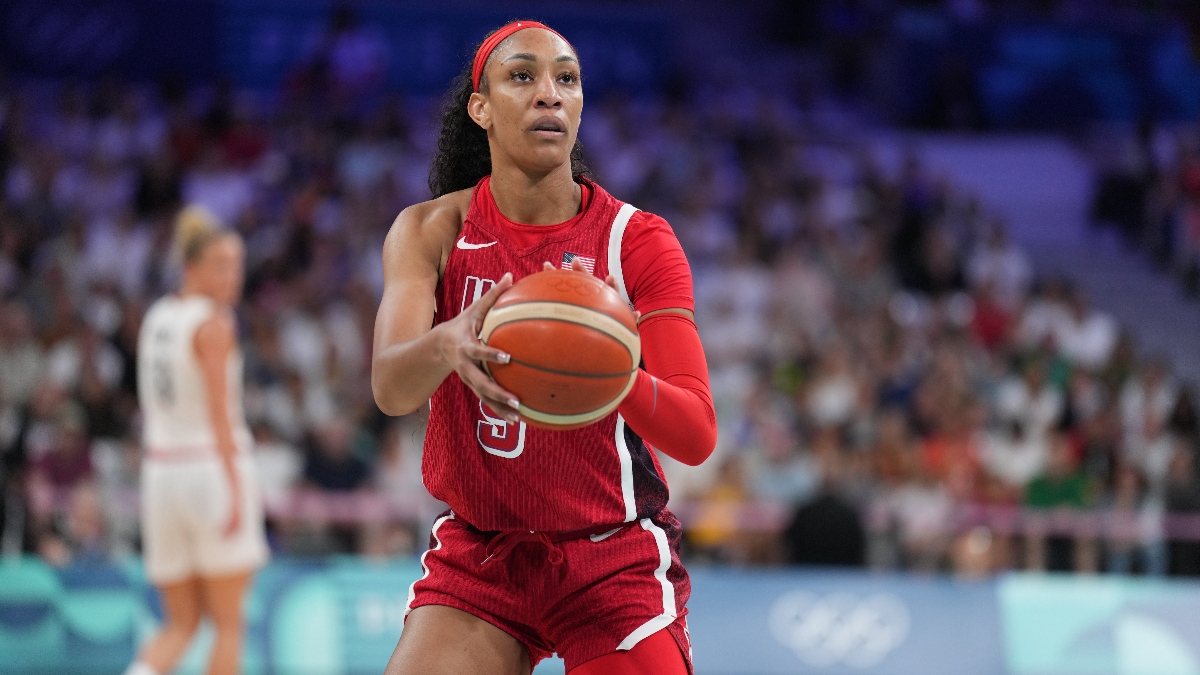2024 Olympic Golf Statistical Breakdown
Projected Leaderboard When Adding Together Actual Ball Striking With Baseline Putting + Around-The-Green Totals
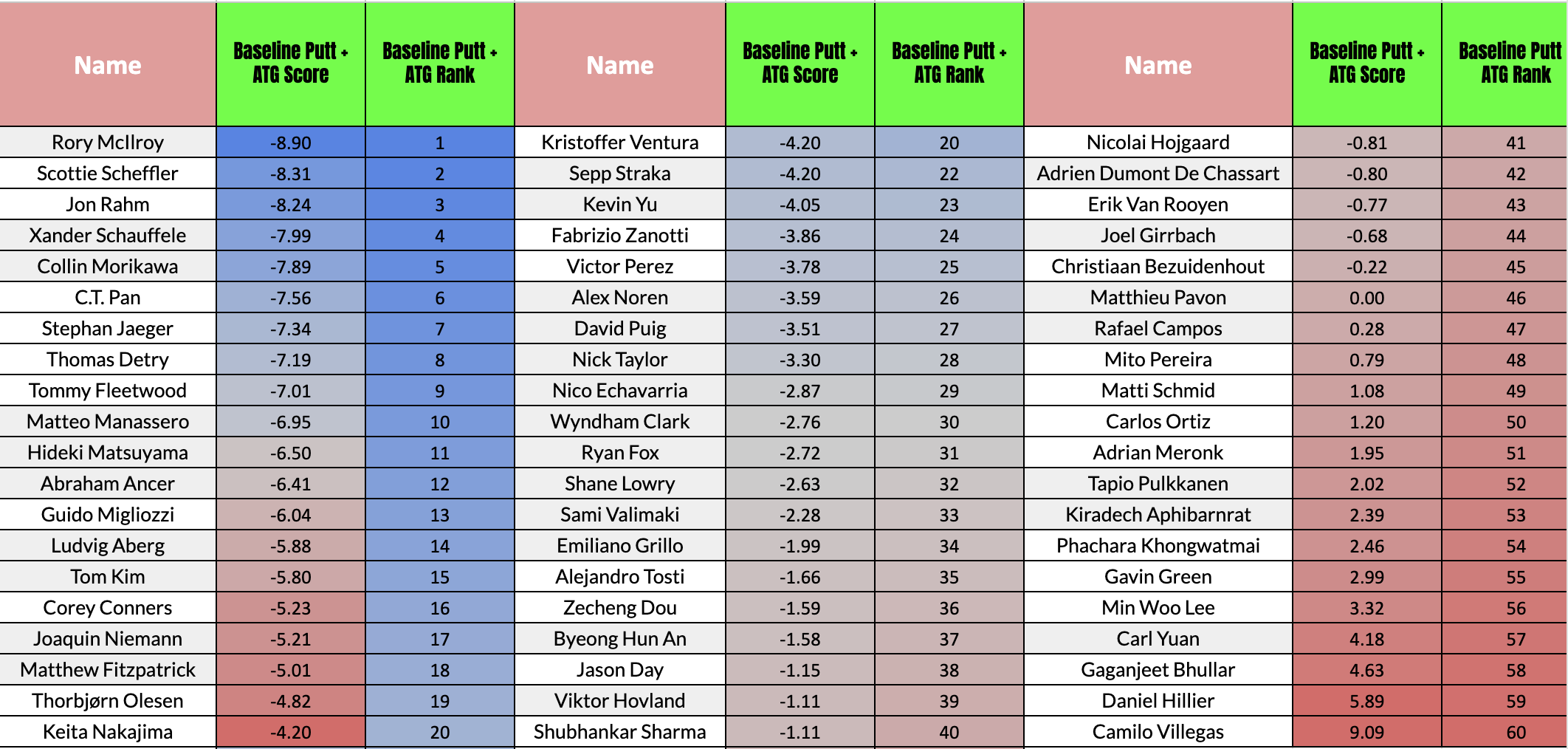
We get a few interesting marks in this area when we examine players who are massively underperforming or overperforming on the leaderboard.
At the end of the day, this is golf. That means volatility will always be rampant in all sectors of the Strokes Gained data. I don't want that viewpoint to be lost as we try to uncover value in any market. However, I talk about putting and around the green performance as much as I do because those are the two areas that experience the most volatility daily.
That narrative has gotten a little confused and overblown throughout the industry recently since someone gaining or losing strokes has almost made the next day an automatic fade/play route in the eyes of some. I don't want that to ever be the outlook that is taken when you are trying to find value. It's why I always stress slowly infusing that in-tournament data into the pre-event metrics and incorporating baseline expectations in place of the more irregular outputs.
Overachievers (Leaderboard Spots)
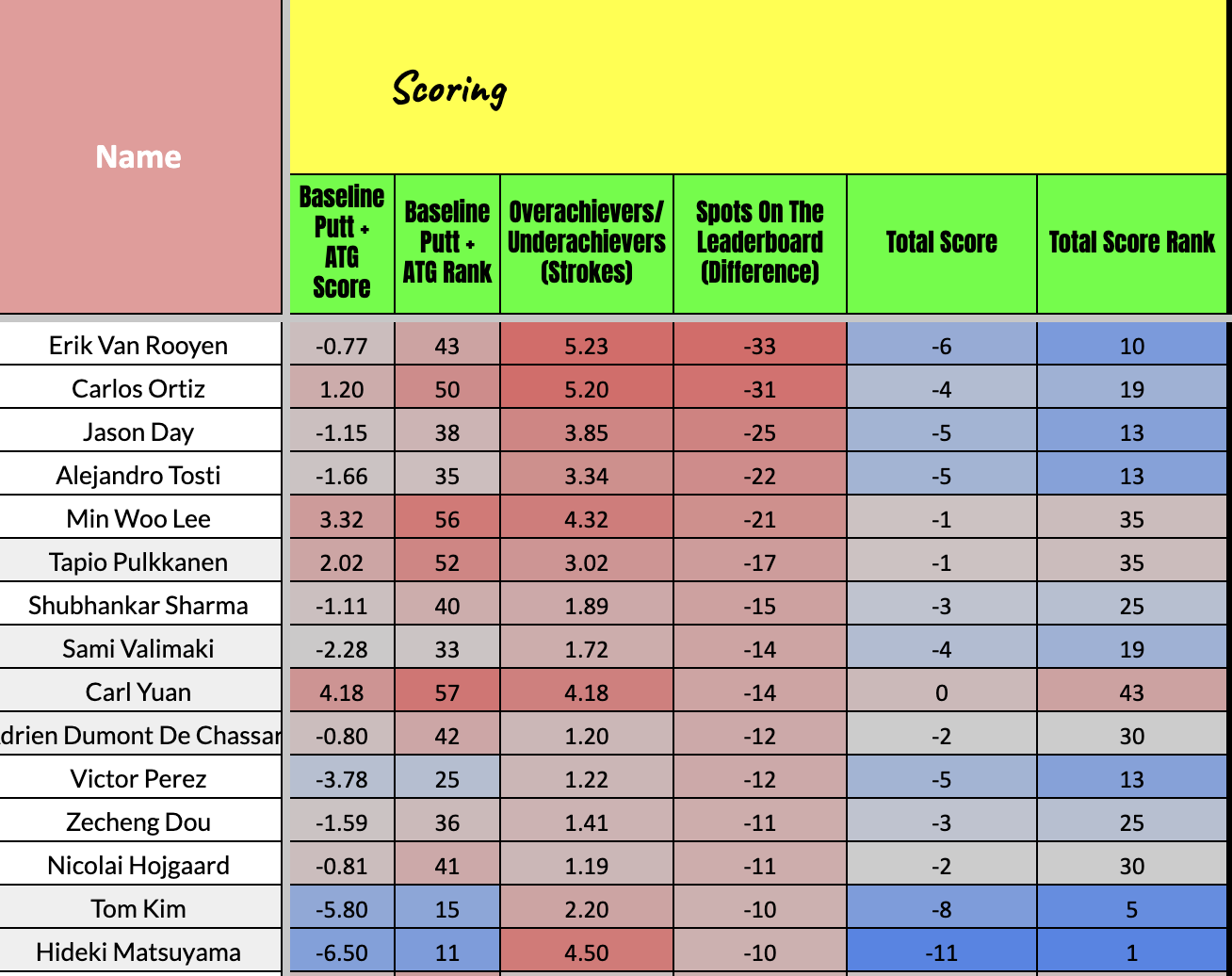
Overachievers (Strokes)
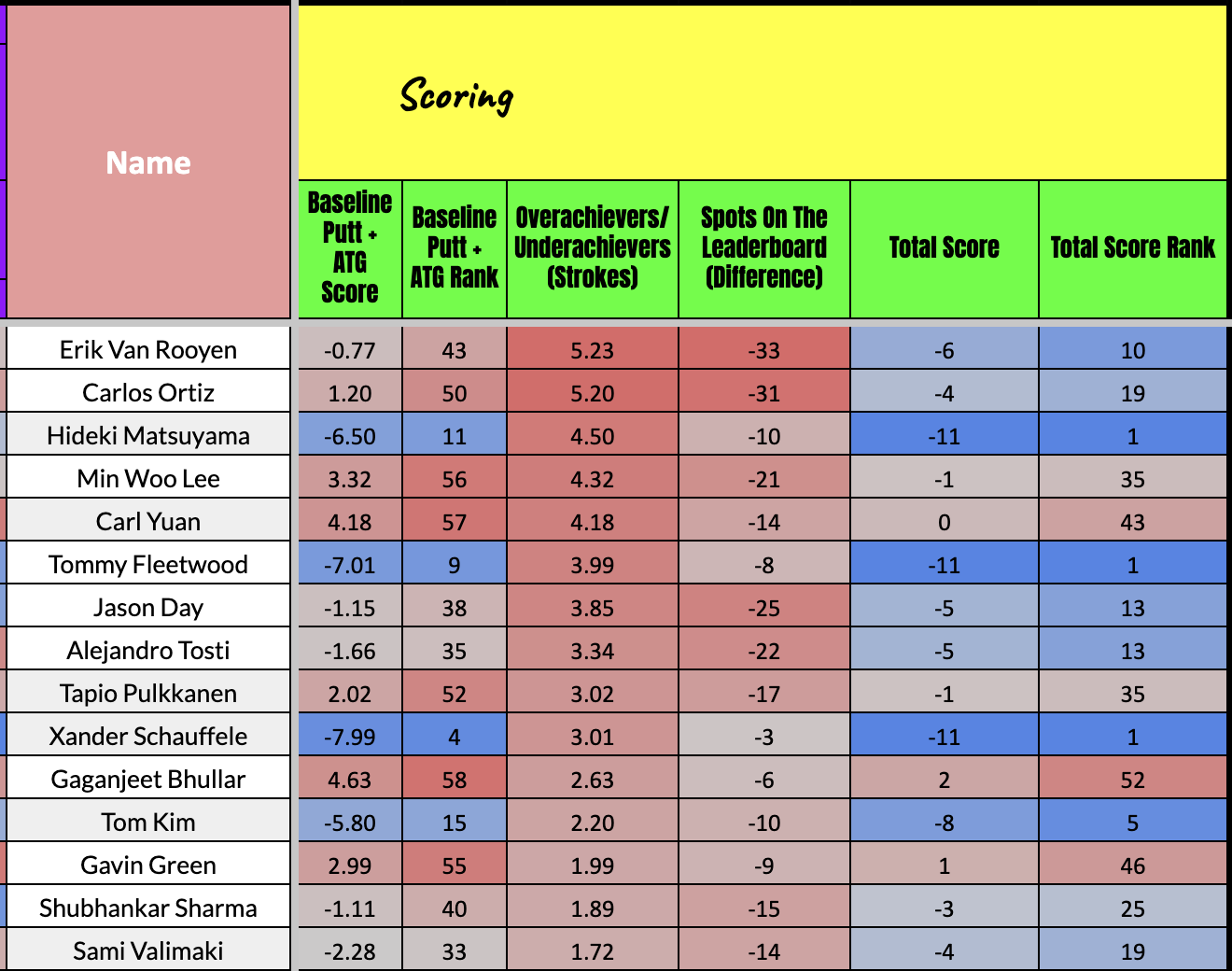
Some of those totals above in the two overachievement images are more damning than others.
One of the essential notes to look for is how someone ranks on the actual leaderboard versus their Baseline Putt + Around-The-Green grade.
We get the prime examples of why the overachievers for just the "Strokes" portion can be flawed when we dive into names like Tommy Fleetwood, Hideki Matsuyama, Xander Schauffele and Tom Kim. Four options that are projected top-15 participants on the board but have generally overachieved to greater heights this week.
You need that blueprint to win a gold medal or any tournament weekly. Those names may be surpassing their expected performance but are doing so with stout pre-tournament profiles and standard ranges of error in a profile.
What isn't as normal is when you get names like Erik Van Rooyen, Carlos Ortiz and Min Woo Lee overachieving by 20-30 spots on the leaderboard of a 60-man field and doing it because they are over four shots better than anticipated in areas of their game that wouldn't warrant that discrepancy.
I understand that someone like Lee is a prominent short-game golfer, but when you gain 4.56 shots through two rounds, compared to your baseline suggesting you should be closer to a quarter-of-a-stroke, you start seeing flaws in an already questionable profile that has lost 5.95 shots ball-striking.


I mentioned earlier that the narrative has been overblown because taking two rounds of golf versus an entire pre-tournament projection is equally troubling when making in-tournament head-to-head wagers.
However, it is always pretty easy to see where my model is trying to attack when the week starts when these situations present themselves.
Here were my worst values pre-event:
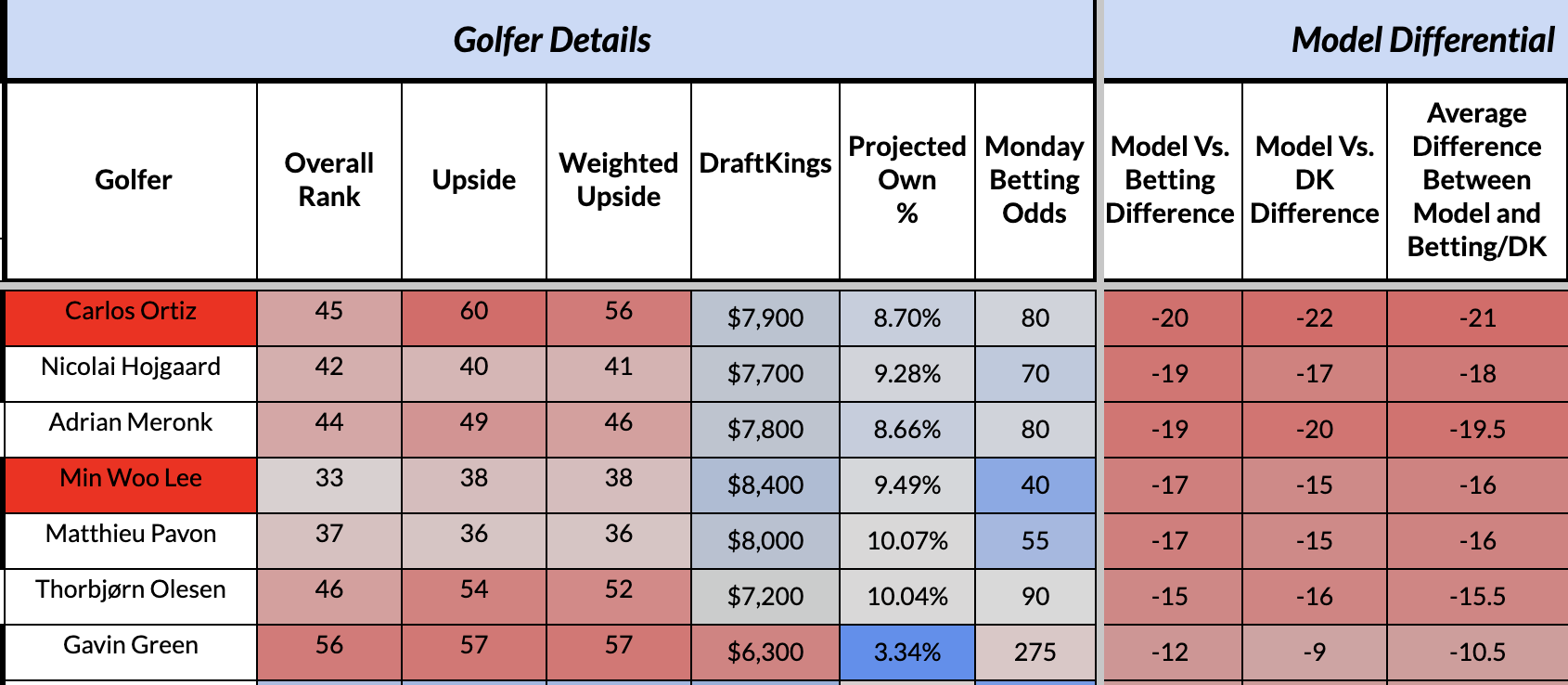
Bad Luck Sometimes Happens
Nobody wants to hear it, but not every winning bet was correct, just not like every losing ticket was wrong.
We can take three prime examples of that this week to accentuate that thought from wagers I made.
*** Please note that all projected scores are based directly off my baseline numbers within the model
Full Tournament
Abraham Ancer over Carlos Ortiz – Down 3 – Should be Up 7.61 – (10.61 Below Average)

Matthew Fitzpatrick over Min Woo Lee – Up 4– Should be Up 8.33 – (4.33 Below Average)

In Tournament
This was our play for round two.
Matteo Manassero over David Puig – Pushed – Should Have Won By 1.13 Shots – (1.13 Below Average)
Most of that will typically even out over the entirety of a year, but I wanted to touch on the topic briefly since I mentioned some of my recent run-bad in the head-to-head market when I filmed Links + Locks this week.
Those pre-tournament wagers above are currently splitting and may both win or lose (we can't undo the push), although backtesting your bets is something I love to do because it helps me see if I am reading the board well.
I advise everyone to do similar concepts.
Underachievers (Strokes)
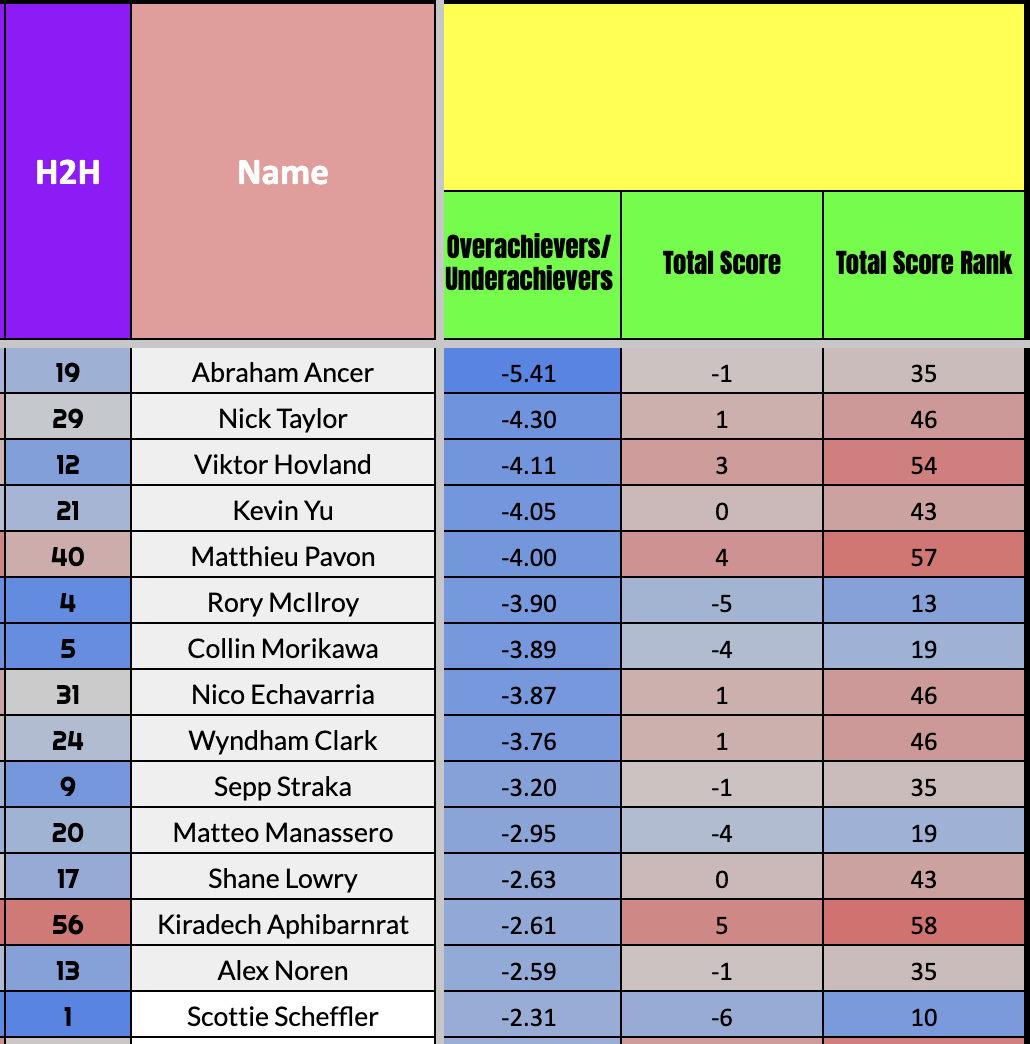
Round 3 Thoughts
My ultimate goal has always been to teach, not tout.
Running your own ranks, grades or projections is the one way to ensure you can create line movement without waiting for an answer. I built that factor into my model to weigh the data however you see fit since you get a deep dive into my database. Nonetheless, I found myself in a position where I faded Van Rooyen and Lee in round three.
Many of the Ortiz numbers left more to be desired than I felt was worth it since I didn't love the golfers I would be backing. Still, I hope you can find some reasonable options to oppose tomorrow based on the data above, including potential options in the market against Van Rooyen and Lee.

